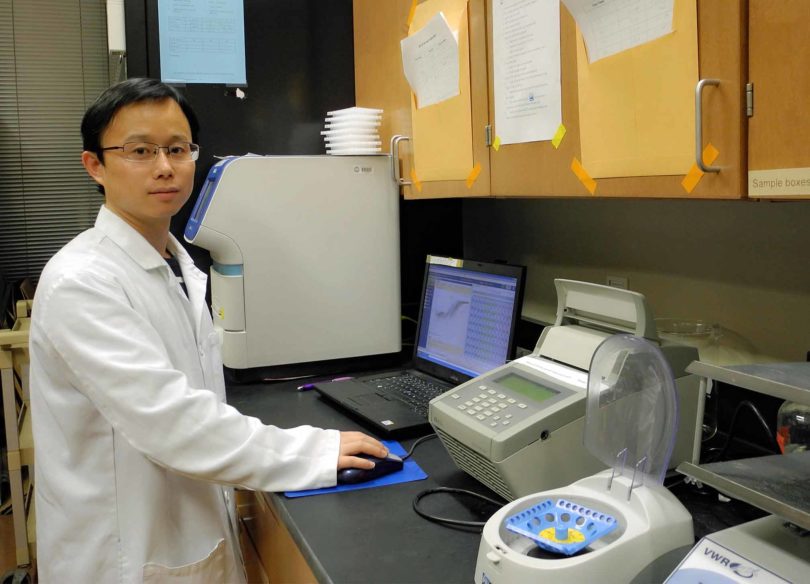Athens, Ga. – Researchers at the University of Georgia have discovered that a chemical compound commonly found in coffee may help prevent some of the damaging effects of obesity.
In a paper published recently in Pharmaceutical Research, scientists found that chlorogenic acid, or CGA, significantly reduced insulin resistance and accumulation of fat in the livers of mice who were fed a high-fat diet.
“Previous studies have shown that coffee consumption may lower the risk for chronic diseases like Type 2 diabetes and cardiovascular disease,” said Yongjie Ma, a postdoctoral research associate in UGA’s College of Pharmacy and lead author of the paper. “Our study expands on this research by looking at the benefits associated with this specific compound, which is found in great abundance in coffee, but also in other fruits and vegetables like apples, pears, tomatoes and blueberries.”
During the past 20 years, there has been a dramatic increase in obesity in the United States. More than one-third of U.S. adults and approximately 17 percent of children are obese, according to the Centers for Disease Control and Prevention, and the annual medical cost of obesity is more than $147 billion.
Aside from weight gain, two common side effects of obesity are increased insulin resistance and the accumulation of fat in the liver. Left untreated, these disorders can lead to diabetes and poor liver function.
To test the therapeutic effects of CGA, researchers fed a group of mice a high-fat diet for 15 weeks while also injecting them with a CGA solution twice per week.
They found that CGA was not only effective in preventing weight gain, but it also helped maintain normal blood sugar levels and healthy liver composition.
“CGA is a powerful antioxidant that reduces inflammation,” said Ma, who works in the laboratory of professor Dexi Liu in the department of pharmaceutical and biomedical sciences. “A lot of evidence suggests that obesity-related diseases are caused by chronic inflammation, so if we can control that, we can hopefully offset some of the negative effects of excessive weight gain.”
But the authors are quick to point out that CGA is not a cure-all. Proper diet and regular exercise are still the best methods to reduce the risks associated with obesity.
The mice in this study received a high dose of CGA, much higher than what a human would absorb through regular coffee consumption or a diet rich in fruits and vegetables.
However, the researchers do believe that CGA may form the foundation of a treatment for those who need extra help. They plan to conduct more research to develop an improved CGA formulation specifically for human consumption.
“We’re not suggesting that people start drinking a lot of coffee to protect themselves from an unhealthy lifestyle,” said Ma, who is also a member of UGA’s Obesity Initiative. “But we do think that we might be able to create a useful therapeutic using CGA that will help those at risk for obesity-related disease as they make positive lifestyle changes.”
For a full version of the study, see http://link.springer.com/article/10.1007%2Fs11095-014-1526-9
Research in this article was supported in part by grants from the National Institutes of Health under grant numbers RO1EB007357 and RO1HL098295.








